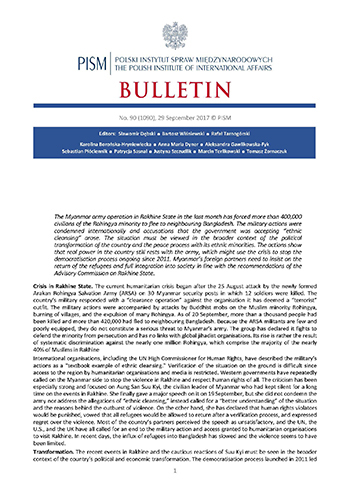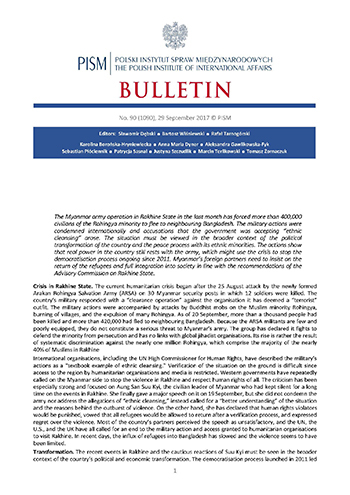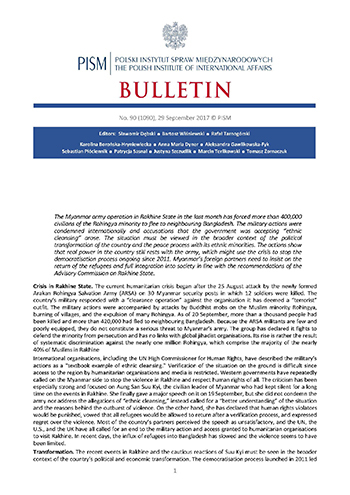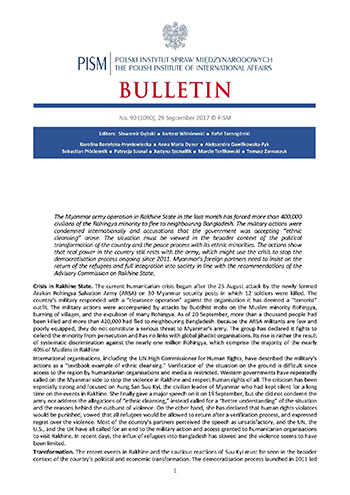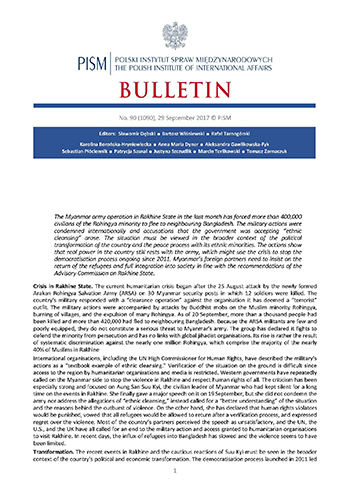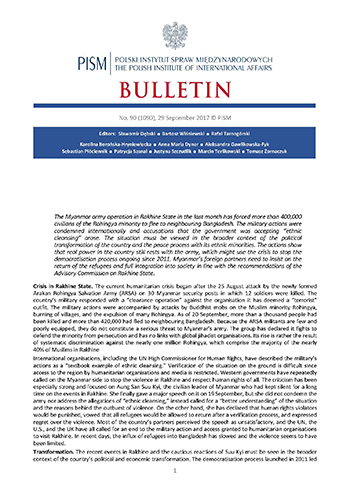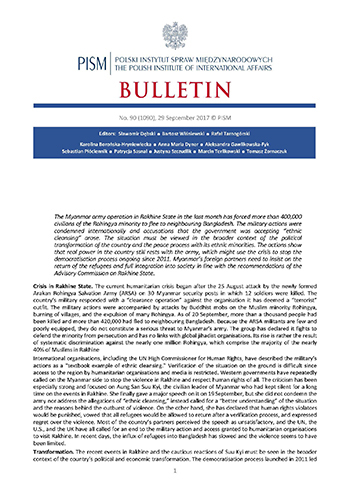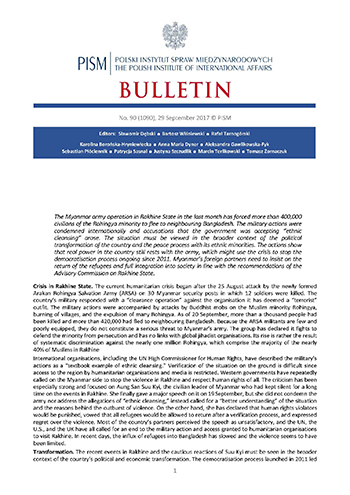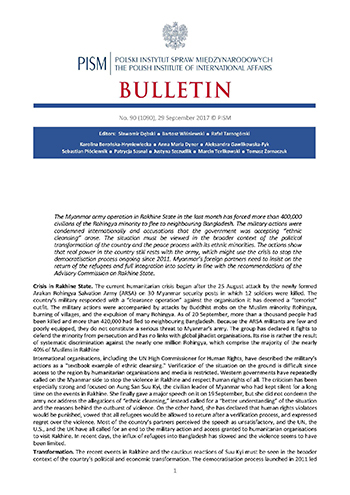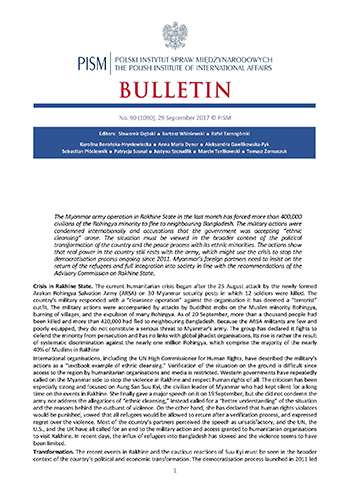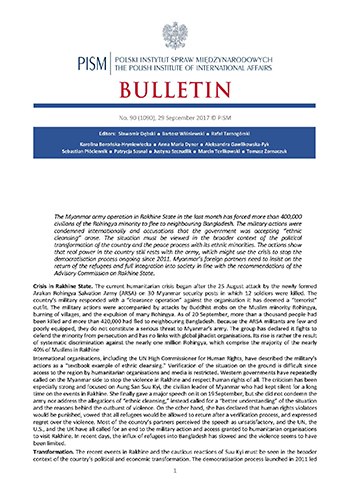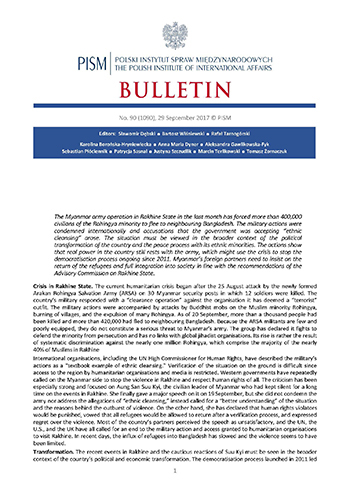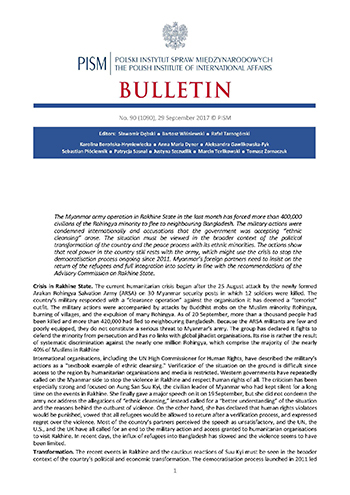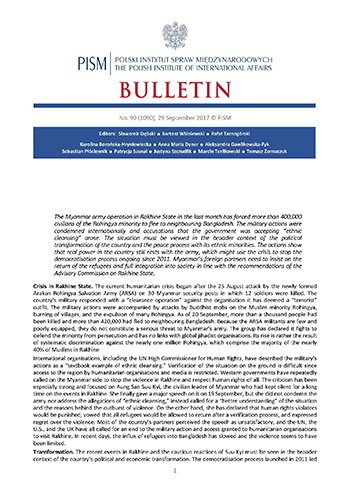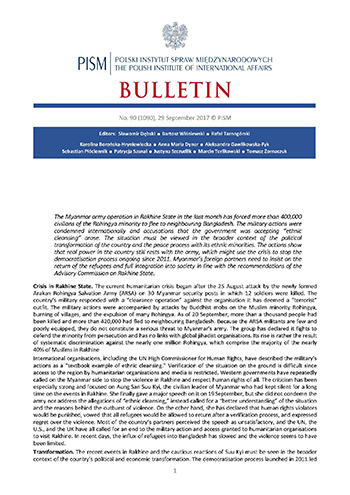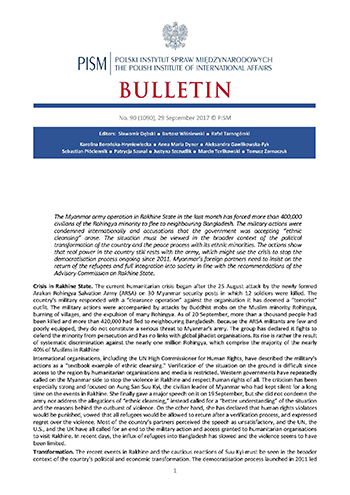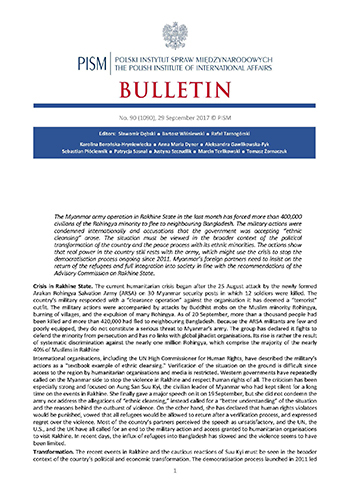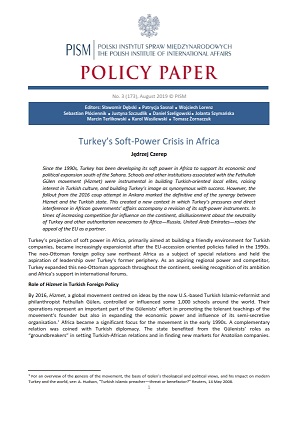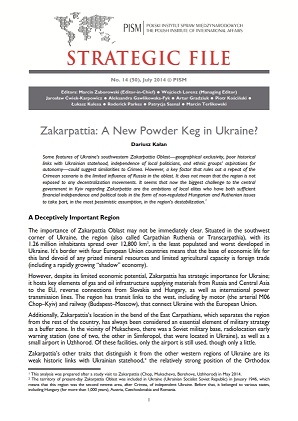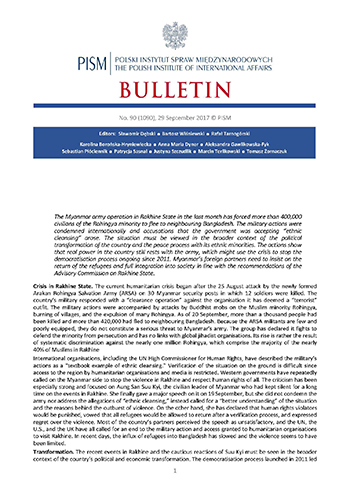
The International Dimension of the Fight for Aleppo in Syria
The offensive by Bashar al-Assad’s military, supported by Russian troops, on Aleppo—Syria’s largest city—might be successful. This large-scale operation was facilitated by the improved relations between Russia and Turkey and because the United States has only limited military options at its disposal. If Aleppo falls, Assad will have control over territory inhabited by more than 60% of Syrians. The brutality of the Russian attacks in Aleppo may, however, carry a political price in the form of new EU sanctions. The clearly harsher rhetoric of Germany, France and the U.S. toward Russia also shows that these countries will not compromise on Ukraine in return for Russian concessions in Syria.
More...
